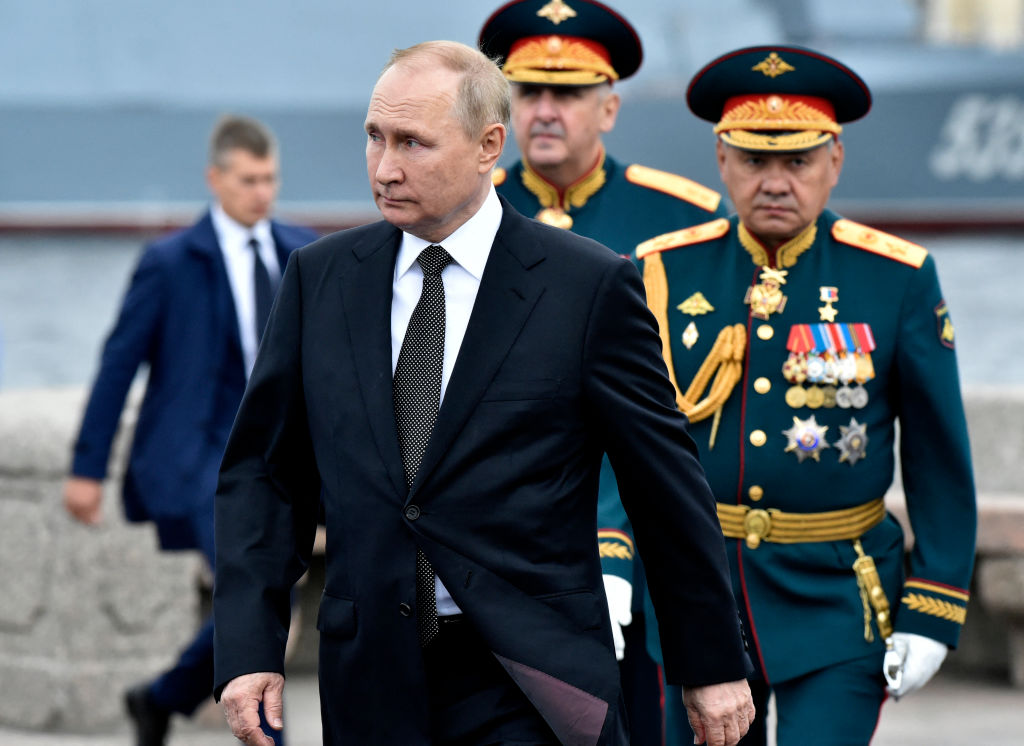“In the Russian army, generals who do not steal are as few as those who do not drink.” Given those words of Russian political scientist Vladimir Pastukhov, it may seem surprising that the Kremlin has decided to wage yet another new war — this time, against corruption within its own military.
In March, Russian President Vladimir Putin commanded the Federal Security Service (FSB) to investigate corruption in defence procurement. The high-profile arrest of Deputy Defence Minister Timur Ivanov in April has been followed by the similarly headline-grabbing falls from grace of several other senior defence officials accused of wrongdoing.
However, considering that corruption in Russia’s military has traditionally been both widespread and widely tolerated, the question remains as to why this crackdown is being implemented now. Potentially, with Moscow’s direct military spending predicted to reach nearly $132 billion through 2024 and a long war still ahead, Putin decided that he cannot afford for gun money to go on Gucci. In April, he condemned graft as “stealing the money we need for the defence of the country”, with the UK’s former defence attaché in Moscow Captain John Foreman suggesting that “Putin’s patience finally snapped”.
Moreover, with success in the Ukraine war hinging upon defence production, Russian ex-air force lieutenant Gleb Irisov has claimed that the crackdown aims to counter the damage caused by ex-defence minister Sergei Shoigu having packed the MoD with his cronies and put substandard equipment in the hands of Russian soldiers.
Additionally, investigations by Alexei Navalny’s Anti-Corruption Foundation have long shed light on the lavish lifestyles of officials, who have done investigators’ work for them by personally flaunting their opulence online. It may be that Putin does not want Russian citizens, badly affected by a sanctions-hit economy while their young men die at the front, to grow resentful or demoralised upon seeing their relatives’ commanding officers living high on the hog during a time of war.
Yet a corruption probe is itself war by other means — and, as Russian history teaches, a purge can rapidly gain momentum. Last month, defence and security sources told the Moscow Times that recent arrests are merely the beginning of what will prove to be the “largest purges” in modern Russian history, conducted by the FSB with Kremlin approval and with hundreds of arrests expected across various ranks and units of the MoD.
For its part, the FSB gains an advantage in its rivalry with the military, acquiring extra resources and the opportunity to blame the botched opening stages of the invasion on the army rather than its own intelligence failures. Even small flies are becoming entangled in this particular web, with civilian regional administration officials now being detained.
While it may seem contradictory, a purge of the army could in fact signal Putin’s confidence in Russia’s military might — and even his fear of it. Ukrainian reports claim that the figures punished are those who lost Putin’s confidence earlier in the war through errors or who — like Ivan Popov — showed dissent or criticism. As such, the front line has now stabilised to such an extent that the President feels comfortable settling scores and hacking away at his own army without it damaging Russia’s overall effectiveness in battle.
With the memory of warlord Yevgeny Prigozhin’s mutiny still fresh and the Russian army pushing its advantage in Ukraine, strengthening the FSB at the expense of the military keeps the latter malleable and under Putin’s control. Russian political scientist Ekaterina Schulmann has commented: “It’s out of the question for the Kremlin to see the military acquire too much power or authority. As for popular generals, they cannot be tolerated.”
As Putin moves around commanders as though they were tin soldiers on a map of battle, he should remember the lessons of history, not least the ease with which purges slide into excess. For all Putin’s apparent confidence in re-arranging his army, the opening days of Hitler’s invasion of the Soviet Union offered ample demonstration of the disarray, weakness and instability of a purged army in war.











Join the discussion
Join like minded readers that support our journalism by becoming a paid subscriber
To join the discussion in the comments, become a paid subscriber.
Join like minded readers that support our journalism, read unlimited articles and enjoy other subscriber-only benefits.
Subscribe